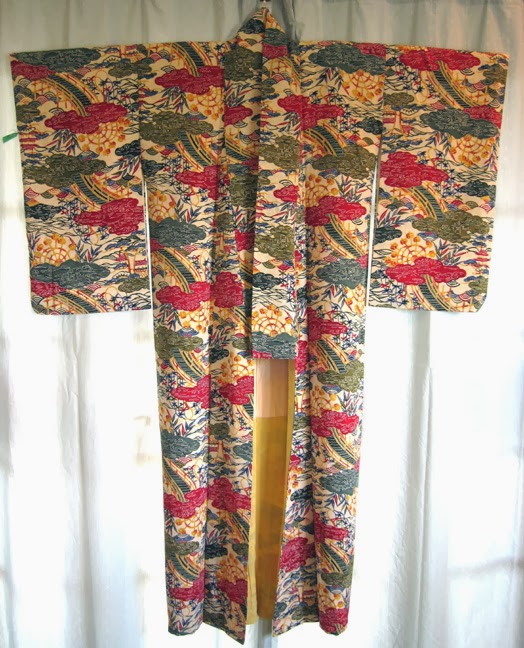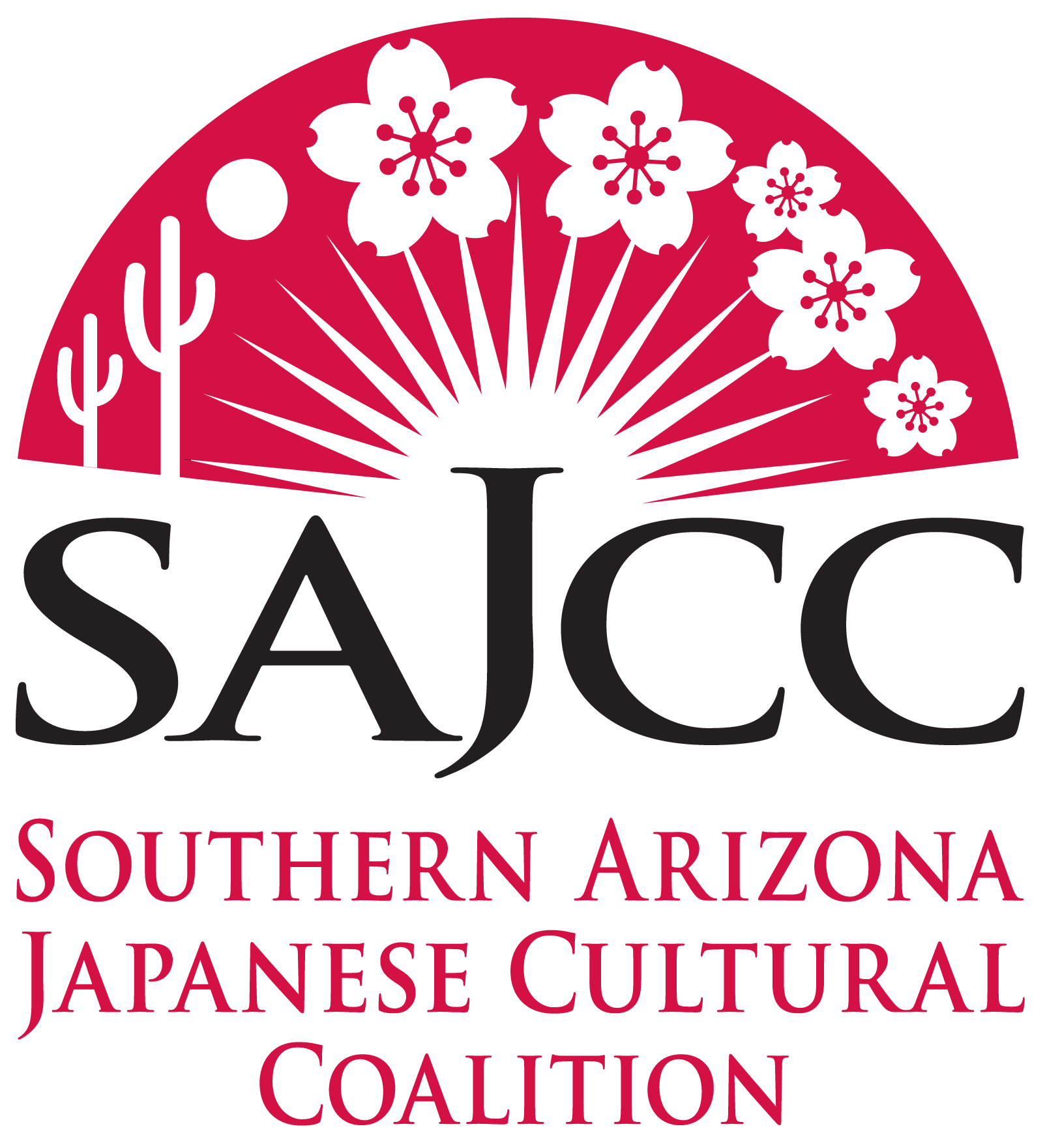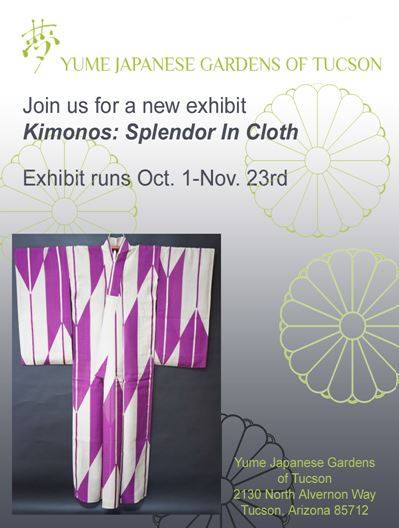
Photo of kimono courtesy of Shakunetsu no Kimono
NEW VISITOR FACILITIES AND KIMONO EXHIBIT MARK SEASONAL REOPENING OF TUCSON’S FIRST AND ONLY PUBLIC JAPANESE GARDEN ON OCT. 1
TUCSON, ARIZONA –Yume Japanese Gardens – the area’s first and only authentic Japanese gardens – will welcome visitors with major improvements and an exhibition of kimonos and wood block prints when the Gardens reopen for the Fall/Winter season on October 1. The non-profit Gardens are located at 2130 Alvernon Way, immediately south of the Tucson Botanical Gardens.
Returning visitors already know that the Gardens consist of independent landscapes incorporating different styles of classical Japanese garden design, as well as a house and other structures highlighting traditional Japanese building materials and techniques.
New this season, however, are a museum and exhibition space, a bookstore and gift shop, and an outdoor patio where visitors can relax.
The new exhibition space will be inaugurated with a display of vintage and modern kimonos, the traditional Japanese robe. Kimonos made with exceptional skill from fine materials have long been regarded as great works of art. Accompanying the kimono exhibit will be a display of 18th and 19th century black-and-white woodblock prints.
“Since we opened in January of 2013, visitors have repeatedly expressed interest in learning more about Japanese culture. We’re now satisfying this curiosity with new facilities that will give people a better opportunity to profit from their visit,” said Patricia Deridder, founder, designer, and executive director of the Gardens.
“Over the past year we’ve had monthly musical and dance performances, seasonal festivals, Japanese language classes, and flower arranging workshops and exhibits that have been very popular,” added Deridder. “We wanted to expand on those offerings by developing a permanent museum and exhibition space to bring more aspects of Japanese culture to the public.”
Visitors to the new exhibition space will be able to inspect more than a dozen different kimonos made of silk or cotton and gain an appreciation of the characteristics of this garment and its many variations in color, fabric, and style. The presentation runs from October 1 to November 23 and will be followed throughout the year by a series of rotating exhibitions highlighting other expressions of classical and contemporary Japanese culture.
Free reception for this exhibit on Tues. Sept. 30, 5 to 7 p.m. at the gardens.


